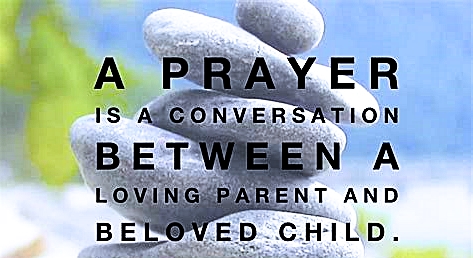Conversational Prayer – BT12

Drawing-near, conversational-prayer includes calling or crying out for God Himself not just His stuff
Please follow the BLOG Etiquette to stay on topic and pass the moderator’s check. Bold, underlined text below = future links to the BLOG pages.
See Conversational-Prayer – BT4 for seeking God Himself and not just His stuff or help.
In this kind of proseuche conversational-prayer we can indeed humbly “call on the Lord.” Paul promises in Romans 10:12-14, “Everyone who calls on the name/person/authority of the Lord [Jesus] shall actually be saved . . . bestowing His riches on all who call on Him,” but then Paul asks, “How then will they call on Him in whom they have not had trusting-relying-faith in?” Paul tells Timothy to “De and-now flee youthful passions de but-instead-now pursue righteousness (a), trusting-relying-faith, unconditional-love, [and] peace (b) along with those who call on the Lord from a katharos pure (c) heart” (d). Psalms 116:17 says, “I will offer to You the sacrifice of thanksgiving and/coupled call on the name/person/authority of the Lord.” <Notes> a) context: right-living, thus sanctification/holiness. Notice how this is associated with trusting-relying-faith, b) context: harmony with others. Notice how this is associated with unconditional-love, c) katharos: purged, clean, pure, unmixed – similar to hagios holy, d) 2 Timothy 2:22.
“Calling on the name/person/authority of the Lord” is a Jewish idiom (a) equated with “Calling on/to the Lord” Himself (b) that carries a great promise: “The Lord is near to all who call on Him, to all who call on Him in/by/with truth [i.e., sincerely]” (c), “so let us presently/ongoingly proserchomai ‘towards coming-from-one-place-to-another drawing-near’ with a true [sincere] heart in full assurance of trusting-relying-faith” (d). We saw that “calling on the Lord from a katharos pure-unmixed heart” in 2 Timothy 2:22 above, for “blessed are the katharos pure-unmixed in heart, because they shall horao ‘observe, perceive, discern’ God” (e). <Notes> a) Genesis 12:8, 21:33; Psalms 105:1, 116:4, 13, 17; Joel 2:32; Zephaniah 3:9, 13:9, b) Psalms 99:6, 118:5; Judges 16:28; 2 Kings 20:11; 1 Chronicles 21:26, c) Psalms 145:18, d) Hebrews 10:22, e) Matthew 5:8.
“Crying out to the Lord for us” is the proseuche conversational-prayer Moses did for Israel (a). It is equated with “calling upon the Lord” above in 2 Samuel 22:7, “I called upon the Lord . . . He heard my voice, and my cry came to His ears.” It’s equated to proseuche conversational-prayer by the psalmists: “attend to my cry, give ear to my proseuche conversational-prayer” (b), and “hear my proseuche conversational-prayer, O Lord; let my cry come to you” (c), and “Have regard to the proseuche conversational-prayer . . . and to his deesis supplication-prayer, O Lord… listening to the cry and to the proseuche conversational-prayer …who proseuchomai conversationally-prays before you” (d). It is associated with waiting-patiently (see a BLOG below): “I waited-patiently for the Lord; He inclined to me and heard my cry” (e). This ‘crying’ is in the morning, noon, even all day and night (f). We see Jesus listening to a Canaanite woman who cried out to Him (g) and the blind man that Jesus healed (h) and say, “will not God give justice to His elect, who cry to Him day and night?” (i). Paul says, “because you are sons, God has sent the Spirit of His Son into our hearts, by whom we cry ‘Daddy, Father’” (j). <Notes> a) Exodus 14:15, b) Psalms 17:1, c) Psalms 102:1, d) 1 Kings 8:28 and 2 Chronicles 6:19, e) Psalms 40:1, f) Psalms 22:2, 86:3, 88:1; Lamentations 2:19; Jeremiah 20:16, g) Matthew 15:22-23, h) Mark 10:47, i) Luke 18:7, j) Romans 8:15; Galatians 4:6.
Therefore, in proseuche conversational-prayer we can indeed wholeheartedly “cry out to the Lord” for mercy, rescue, and with our deesis supplication-prayers, just what Israel asked Samuel to never stop doing for them (a). Samuel said: “Gather the elders and land’s inhabitants to the house of the Lord your God, and cry out to the Lord” (b). Job realizes that unfortunately man waits until they are at the end of their ropes: “Because of the multitude of oppressions people cry out; they call for help” (c). Hosea accuses the Jews: “Woe to them, for they have strayed from Me! . . . They do not cry to Me from the heart, but they wail while lying in their beds (d)” (e). David sings “Be merciful to Me, O God…I will take refuge . . . I cry out to God Most High, . . . He will send from heaven and save me . . . God will send out His steadfast unconditional-love and His faithfulness.” He also says, “O Lord, God of My salvation, I cry out day and night before You” (g), and “With my voice I cry out to the Lord; with my voice I plead for mercy to the Lord” (h), and again: “But I, O Yahweh, cry to You; in the morning my proseuche conversational-prayer comes before you” (i), and again: “Out of the depths I cry to You, O Lord” (j), and finally: “In my distress I called upon Yahweh; to my God I cried for help. From His temple He heard my voice, and my cry to Him reached His ears” (k). Can you see why God favored David? Lamentations says, “Arise, cry out in the night, … pour out your heart like water before the presence of the Lord! Lift your hands to Him” (l). Jesus asks: “Will not God give justice to His elect [people], who cry to Him day and night? (m)? <Notes> a) 1 Samuel 7:8, b) Joel 1:14, c) Job 35:9, d) this is a euphemism: yelling out ‘O, God’ during intercourse, just as people often do today, e) Hosea 7:13-14, f) Psalms 57:1-3, g) Psalms 88:1, h) Psalms 142:1, i) Psalms 88:13, j) Psalms 130:1, k) Psalms 18:6, l) Lamentations 2:19 , m) Luke 18:7.


Leave a Reply